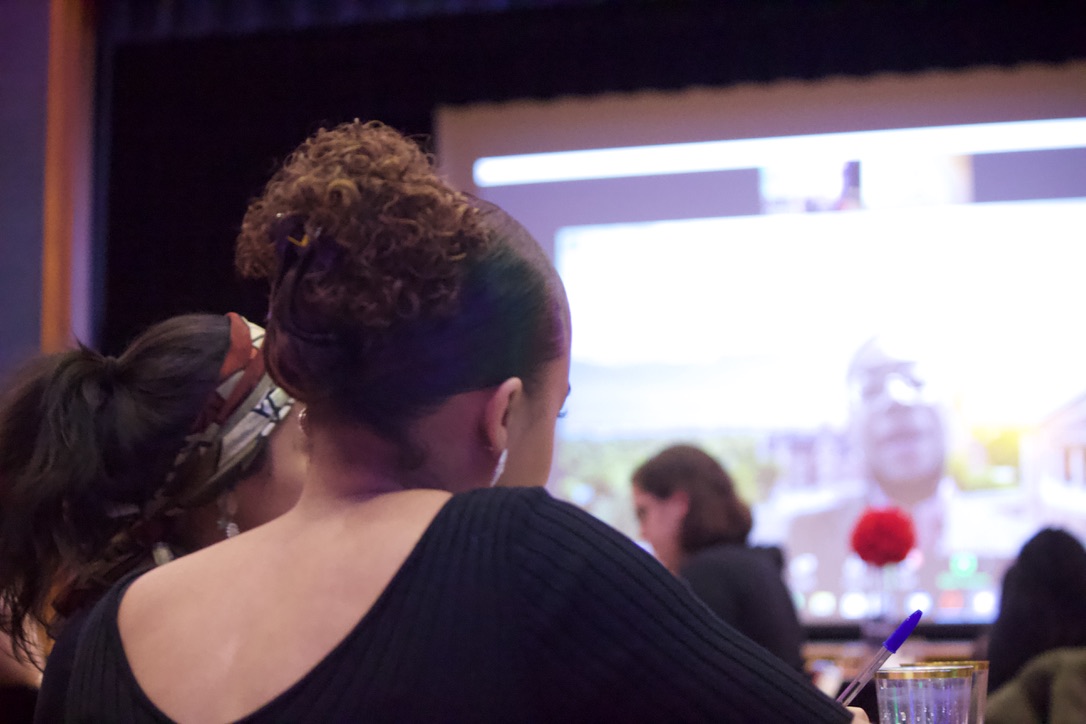Inaugural QTPOC Gala features keynote speaker D.L. Stewart
To encourage a more diverse community on campus, Dialogues on Diversity are being implemented for both students and faculty. PHOTO CREDIT: uri.edu
The Gender and Sexuality Center and the Multicultural Student Services Center held the inaugural Queer and Transgender People of Color (QTPOC) Black History Month Gala to celebrate the intersection of identities and create a community for University of Rhode Island students.
The event was held on Thursday, Feb. 24, but was initially proposed this past winter break by Manuela Vadis, the interim coordinator of the Gender and Sexuality Center. However, she said bringing the event together was a team effort.
“My vision came true to life, but it really takes a team effort to see it through,” Vadis said. “When I say it is a community, it is really all the people who come together to see it through. Seeing people from the Hillel, MSSC, Talent Development coming together to support each other is so important.”
The Gala opened with a land acknowledgment by Vange Hopkins. This was followed by a rendition of the Black National Anthem by Titiana Tambi, a junior and secretary of the Black Student Union.
That was followed by a speech by Danii Carrasco, a first-year graduate student in the college student personnel master’s program. Carrasco shared her personal experiences with the intersection of her own identities.
“When you are a person of color and queer or trans, it’s different because you are probably still a minority anywhere you go,” Carrasco said.
Holding events such as this gala at URI, a predominantly white institution, are important to create a community and make everyone feel safe, according to Vadis.
“We are making sure that we are continuing to celebrate the intersectionality of identity by creating a space and opportunities for all walks of life to be present,” she said.
The audience was then joined by the keynote speaker D. L. Stewart, professor and department chair at Denver University, who attended the gala via Zoom from Colorado. He spoke on the theme of safety to freedom. He began his speech by talking about what it means to be safe.
Stewart said that there are two definitions for safe that he has found. The first is protected from or not exposed to danger or risk, not likely to be harmed or lost.
“Those institutions, those colleges and universities were rooted in settler colonialism and white supremacy they relied on and targeted for destruction, the relationality of Indigenous peoples to the land, their sovereignty, the self-determination of Black bodies for their labor and reproduction,” Stewart said. “Black kinship groupings black spirituality, all of these things were targeted for destruction at the onset of colleges and universities in this country.”
The second definition of safety, according to the Oxford Dictionary, is cautions and unenterprising. This relates to universities in the sense that universities often play it safe, according to Stewart.
“There’s a greater concern for public perception of behaviors and for leading with vision, being bold, being transformative, being valued based on their leadership, because what about what the public will say,” Stewart said. “This is a particular danger in public universities.”
URI is a public university and a primarily white institution (PWI), but the organizations on campus place priority on making sure students feel heard throughout the whole year, not just specific months dedicated to them. The events are not simply performative, according to Vadis.
“If we are an institution that’s going to strive to make sure we are creating safe spaces for all students, especially students of color who have other identities with gender and sexuality, I think not only do more events need to occur but more celebration of students,” Vladis said. “The point of it all is so QTPOC students feel seen, represented and celebrated because they matter.”
Stewart then connected his presentation back to safety and freedom. He said it is a long-term issue that will last far beyond a semester or a year and may even outlive the people starting the movement. It takes activism and persistence throughout the whole institution.
In addition to the centers, Vadis said that there must be more changes in order to make QTPOC students feel safe.
“It has to be the student body, the administration and the board of all these spaces making the changes so students feel seen and most importantly feel safe,” Vadis said.
Vadis and the team at the Gender and Sexuality Center have the hope to make the QTPOC Gala an annual event that will eventually be able to grant a scholarship to a QTPOC student.

